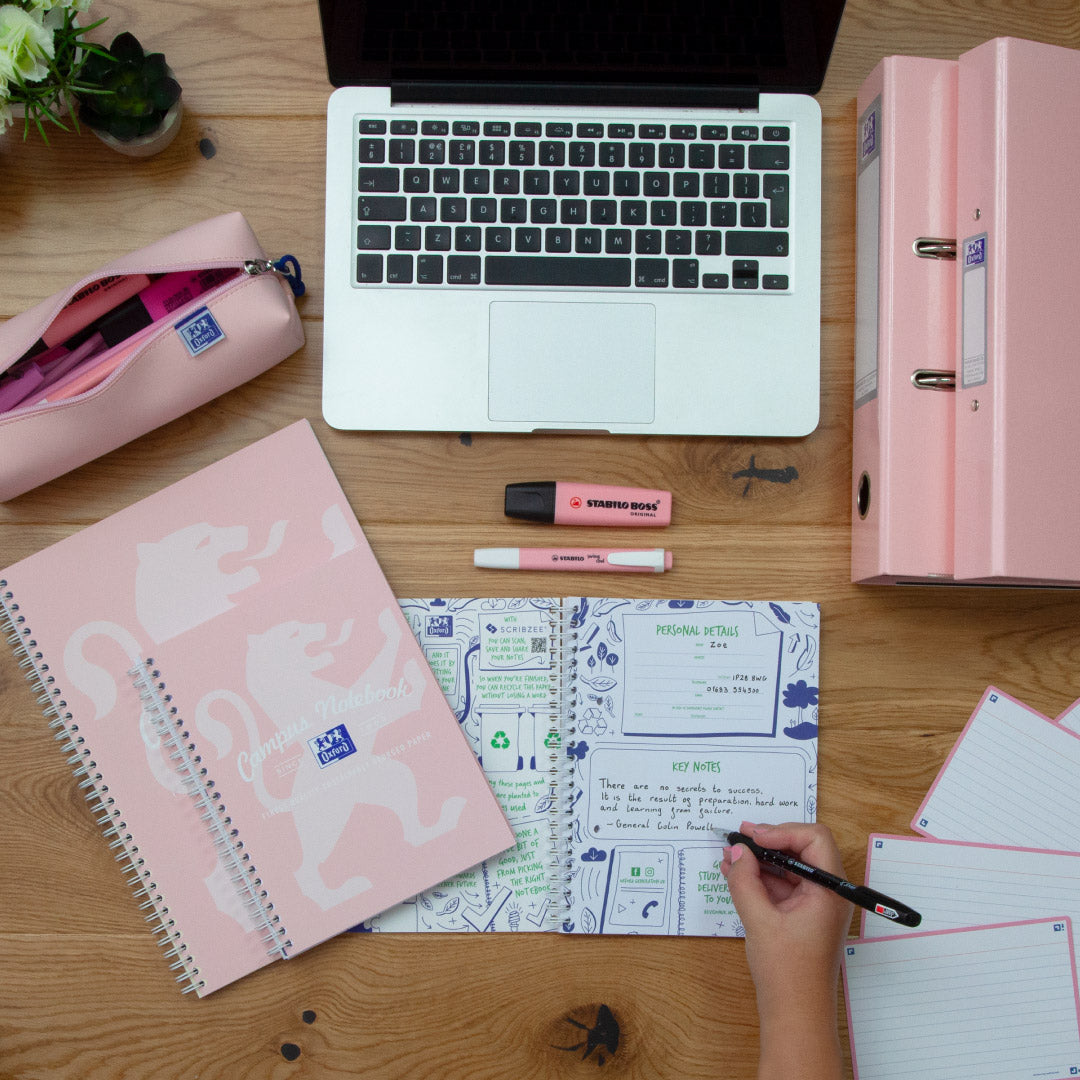The news has just landed: you have a super important exam next week, and you have to learn your entire course in record time. In a panic, you grab all your loose papers and revise on the fly as soon as you can. And you still dare to ask yourself “why don't I retain what I learn?” after your sessions...
Nothing is lost. We will give you all our advice to learn more effectively. Stay with us! 😉
Do you remember anything? Relax!
Neurologists have estimated that the brain has a storage capacity of 1 petabyte. You should also know that in theory, your memory cannot be saturated…so you have an almost infinite capacity, and you can retain everything you want if you do it right. What an incredible organ! 😌
When you try to learn something, you try to store information in your brain. On the other hand, this short-term storage obeys rules: its capacity is limited - unlike the long-term memory we have just mentioned - and empties very quickly to make room for new information that arrives around 30 seconds.
To make matters worse, with the daily mass of work, the rush of exams, your lifestyle which takes a hit... Your memory often loses its Latin. Yes, studies have shown that stress can deteriorate the hippocampus, an area of the brain that plays a key role in the process of memorising and retaining information.
👉 It is therefore in your interest to learn how to manage your stress before exams using sophrology, meditation or even by calling on professionals.
Beyond neurological causes, poor study habits can also impact your ability to learn effectively. Your brain is a muscle that needs to be exercised regularly for it to perform well. Just change your habits and a little elbow grease! This is what can help you 👇
Learning is learning
According to the previously mentioned storage theory, if you attend a class in the morning, you will still have some memories in the evening. But the next day, the new courses will take their place in your short-term memory. To keep lasting traces, it is essential to learn as quickly as possible.
Finding your memorisation strategy is a unique process that belongs to everyone. But it's been proven time and time again that one of the best ways to learn is through repetition.
👉 By repeating information, you will make it "come back" several times to the surface as it tries to sink. Are you following us?
The ideal is then to throw a lifeline at the info every time it sinks a little too deep into the water 💦. To know when to play the lifeguard, you can refer to the Ebbinghaus curve, or forgetfulness curve, which indicates the best times to revise a lesson.
Then, you can create reminders on your phone to indicate the ideal days. You can also rely on our SCRIBZEE ® application which includes an “alert” function and set the times when you need to revise to optimise your memorisation. You will receive notifications on D-Day which is very practical for the more head-in-the-air 😉
Understand before you start
Learning can sometimes be treacherous. You may have the impression of knowing a course like the back of your hand without succeeding in giving everything back on the day of the test.
👉 The reason is simple: since you were young, you have been asked to learn by heart tirelessly until it comes back. But if the multiplication tables and irregular verbs lend themselves well to the exercise, this is not the case for other areas.
Good learning is indeed based on memorisation and repetition, but all that is in vain if you have not understood anything. Learning is not only reading, it is above all knowing how to use and restore the information collected.
Whenever you learn something, really ask yourself if you understood it correctly. There are several ways to check this:
- Re-explains by popularising. This is called the Feynman technique. Try to explain your subject to your little brother, your big sister, or your grandmother who doesn't really have a nose in it - unlike you. If you can't, it's because you have to keep digging, even if it means doing additional research to expand your knowledge.
- The blank sheet technique: it consists of rewriting on a blank sheet, in a simplified way and from memory, a lesson to check that you have understood it correctly. Once done, you can go back to your basic course to see if you forgot or inputted any incorrect information. Repeat as many times as necessary!
Take care of your revision materials
You have all your classes in front of you and you are ready to learn, but your grades make you dizzy they are not pretty to see! And here we go again to procrastinate...
Note taking is essential for good retention of information since it stimulates your visual memory. Research from the Association for Psychological Science also indicates that manual note taking is much more effective in optimizing memorization. It would therefore be one of the best ways to retain information!
👉 Hence the importance of taking care of your writing and the presentation of your lessons: an organised, clear note-taking that highlights the essential concepts of the lesson will be your best ally once you return home 🤝
💡 Think about it too: the number 1 enemy of organisation is the loose sheets that are walking around on your desk or in your bag!
The ideal is therefore to have a notebook to centralise your lessons. But the followers of sorters and filing cabinets are not of the same opinion. To keep everyone happy, we created the perfect heir: the revision book. It will allow you to take all your notes in the same place, to detach the pages thanks to the micro-perforations then to sort them according to the materials. So practical 😎
Not everything is good to write
On the other hand, there is no question of writing down all of what you hear in class. Otherwise, you may find it hard to remember everything . In addition, you risk quickly accumulating filled notebooks! 😂
👉 There is a revolutionary note-taking method that allows you to sort the information collected. It is known as the Cornell Method. It consists of dividing your sheet into 4 distinct areas, each reserved for a specific purpose 🔥
- The first is a banner at the very top of your page to note the title of your course, the current date…Anything that helps you find your way around!
- The second is a left margin. It will allow you to write down the key concepts of your course such as definitions, formulas, key dates, and questions that could be asked during the test.
- The note-taking part happens in the bigger part. Here too, think about synthesizing as much as possible; keep only the essentials and use abbreviations to go faster!
- Finally, the margin at the bottom will allow you to make a concise and synthetic summary of the lesson.
This is how it looks!
💡 Because we know that you don't always have time to draw lines on your notebooks before writing down notes, we have developed a notebook with an integrated Cornell ruler. It will accompany you in all your classes and will really make your life easier 🤩
Putting on the cards
To retain everything you learn, nothing is more effective than revision sheets. We often talk about it because it is one of the most popular methods for students and especially the most effective for retaining a course.
You will no longer be lost in your revisions. This is how you progress effectively in your learning!
That's all for today! We hope we have been able to enlighten you on the different memorisation processes and on the reasons why you have trouble learning your lessons. Let's quickly recap, take good notes, get the right revision materials, repeat regularly and above all, what you learn must make sense to you! 👋

